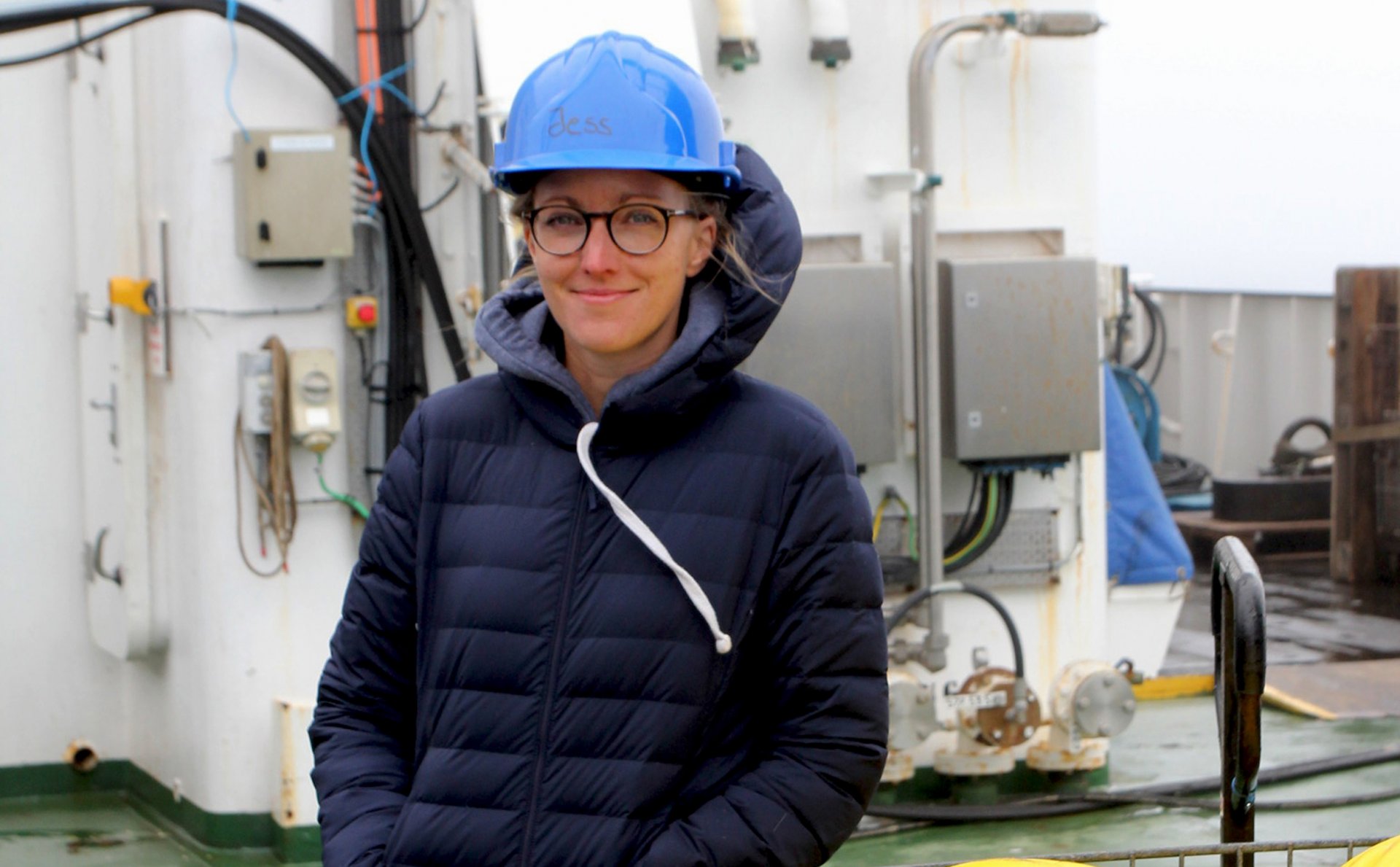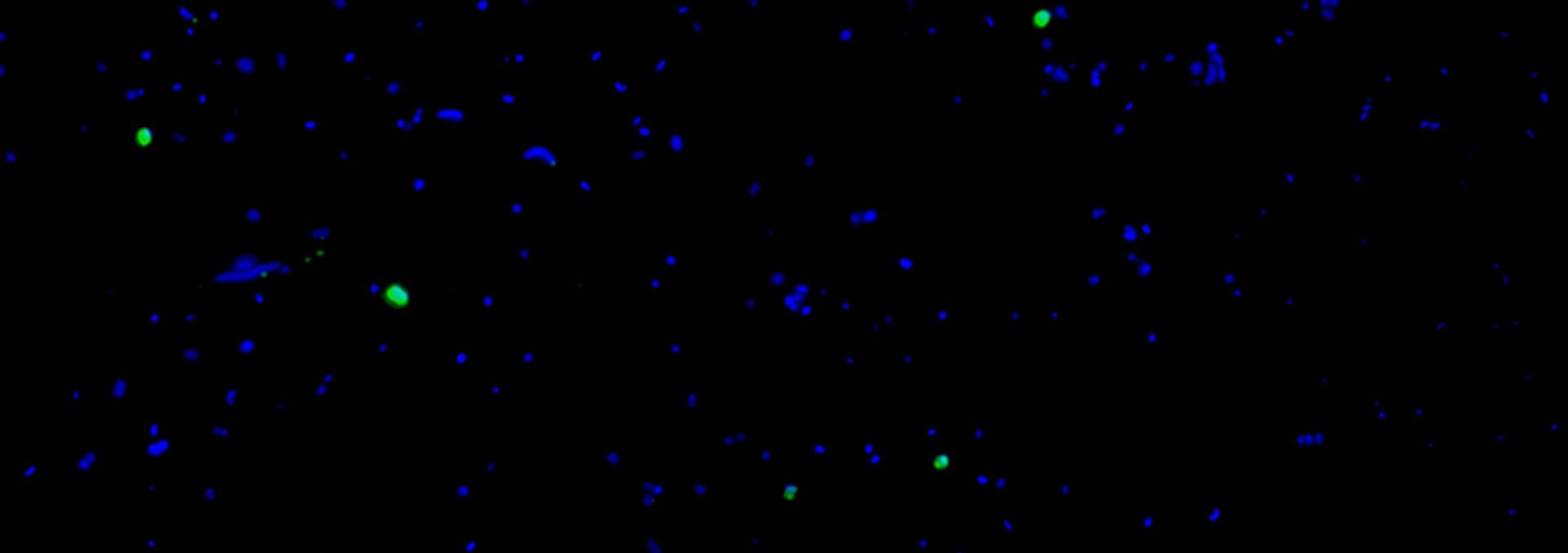- Press Office
- Versatile marine bacteria could be an influence on global warming, scientists discover
Versatile marine bacteria could be an influence on global warming, scientists discover
An international team of scientists now shows that the previously little-studied Nitrococcus bacterium is found in oceans worldwide, and has the astonishing ability to live without oxygen by reversing its metabolism.Their result are published in the journal Science Advances. The team consists of scientists from the Max Planck Institute for Marine Microbiology in Bremen, the University of Southampton (UK), University of Vienna (Austria), University of Nijmegen (Netherlands) and University of Hamburg.
The usual biological ‘function’ of Nitrocosccus – and a handful of other similar bacteria – is to replenish nitrate (NO3-) in the ocean through the oxidation of nitrite (NO2-) – while at the same time converting carbon dioxide (CO2) into building blocks for their cellular structures.
The availability of the nutrient nitrogen often limits growths of algae and other plant-like organisms in global surface ocean, where they harvest light energy to ‘fix’ CO2 into their own body mass. Nitrogen is essential for all life on Earth as it is needed for the making of proteins and nucleic acids. The most abundant and stable form in which it is available to organisms is nitrate. Therefore, the availability of nitrate is directly linked to the ocean’s ability to capture and store the greenhouse gas CO2.
While the sunlit surface ocean often runs out of nitrate, it accumulates to high concentrations in the deep dark ocean thanks to the activity of nitrite-oxidising bacteria like Nitrococcus. When deep ocean water is recirculated back to the sunlit surface as part of natural global ocean circulation (on average a cycle of every 1,000 years), this ‘deep-sea’ nitrate eventually replenishes the growth of algae that form the basis for all life in the oceans.

However, the team found that Nitrococcus can – in the absence of oxygen – ‘switch’ its metabolism so that it reduces nitrate to nitrite and further to nitrous oxide (N2O), while producing, instead of capturing, CO2.
Nitrous oxide is a highly potent greenhouse gas and about 300 times as harmful as CO2. While other marine bacteria are known to produce N2O, this is the first time that a marine nitrite-oxidising bacterium has been found to contribute to the production of this highly potent greenhouse gas and stratospheric ozone-depleting agent.
More importantly, a detailed search in global databases revealed that Nitrococcus has, in fact, a worldwide distribution, meaning that its N2O-producing potential could also be ubiquitous – a potential environmental concern given that the oceans are losing oxygen under the influence of global warming. “As global oceans continue to warm and lose oxygen,” first-author Jessika Füssel explains, “the widespread nature of Nitrococcus and their relatively high abundance – especially in low-oxygen ocean waters, where almost half of global marine nitrogen loss takes place – mean that these bacteria could be on the verge of reversing their key nitrogen-preserving role, adding to the effects of global warming.”
In addition, the team discovered that Nitrococcus has the ability to oxidise sulphide, a compound that is highly toxic to most life, such as in the so-called oceanic dead zones – low-oxygen water bodies associated with high biological productivity. Nitrococcus’s ability to convert hydrogen sulphide (H2S) to harmless sulphur may then contribute to ‘sulphide detoxification’ and protect other life forms.
“These particular bacteria have not been studied in-depth before, and we are very surprised to find not only that they are so widespread and abundant, but also that they possess such astonishing metabolic versatility”, Füssel adds.
The work was funded by the Max Planck Gesellschaft, the Deutsche Forschungsgemeinschaft, BMBF, the Vienna Science and Technology Fund, the Austrian Science Fund, the Netherlands Organisation for Scientific Research, and the UK Natural Environmental Research Council.
Original publication
Adaptability as the key to success for the ubiquitous marine nitrite-oxidizer Nitrococcus
Jessika Füssel, Sebastian Lücker, Pelin Yilmaz, Boris Nowka, Maartje A H J van Kessel, Patric Bourceau, Philipp F Hach, Sten Littmann, Jasmine Berg, Eva Spieck, Holger Daims, Marcel M M Kuypers and Phyllis Lam. Science Advances (November 1, 2017)
In case of questions...
Director
MPI for Marine Microbiology
Celsiusstr. 1
D-28359 Bremen
Germany
|
Room: |
3101 |
|
Phone: |

Head of Press & Communications
MPI for Marine Microbiology
Celsiusstr. 1
D-28359 Bremen
Germany
|
Room: |
1345 |
|
Phone: |

